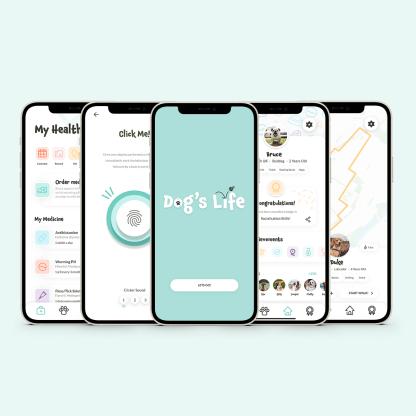
Key information
For:
starting September 2026
UCAS code:
W210
W211
Typical offer:
104-120 UCAS points to include a minimum of 2 A levels, or equivalent
Showing content for section Overview
Overview
On this BA (Hons) Graphic Design degree, you’ll develop your own visual style, with an emphasis on developing your confidence applying digital and traditional design skills. We have an exceptional list of professional connections gained from our industry-active, research-led teaching staff.
With opportunities to specialise in your area of interest and win awards from prestigious graphic design bodies, you’ll build an inspiring design profile that no employer can resist.
Graphic design is a cornerstone of many industries, so you'll have lots of career options after graduation. If you want to start in web design, advertising, branding, and other media, or advance to a Master's: now is your time to explore.
Course highlights
- Show your Adobe expertise to industry peers by gaining an Adobe Certified Professional (ACP) qualification
- Hone vital design techniques – including screen printing, letterpress, laser cutting and dye sublimation printing – using our specialist facilities
- Get your talent recognised by entering international competitions by renowned organisation Design and Art Direction (D&AD), the Royal Society for the encouragement of Arts, Manufacture and Commerce (RSA), and the South West Digital Design Awards (SWDDA)
- Elevate your professional profile by becoming a member of the esteemed International Society of Typographic Designers (iSTD)
- Impress future employers by showcasing your work at our annual Graduate Show
- Experience the graphic design profession by taking a one-year placement – either with a company or by setting up your own
- Connect with companies and communities by taking part in events like the Dyson Challenge Week
- Opt to do a foundation year with ICP to get uni-ready ahead of this course, then take up a guaranteed place on this full Bachelor's degree when you successfully finish your foundation year
93%
of graduates in work or further study 15 months after this course
(latest HESA Graduate Outcomes Survey)
Top 30
for student satisfaction
(Times Higher Education, 2024)
92%
of students were positive about the support provided by teaching staff on this course
(NSS, 2025)
97%
of students were positive about the learning resources and facilities provided on this course
(NSS, 2025)
Browse Graphic Design students' work
Click on an image below to view it in more detail and read students' statements.
To see more student work, browse our Graduate Show 2025 Graphic Design showcase.
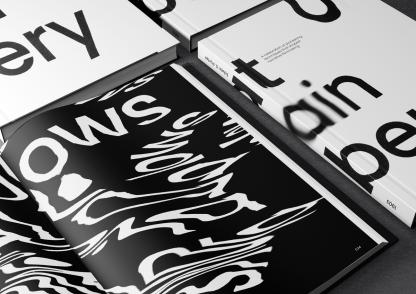
Allison Porta - Wander project
I’m Ali, a quirky and versatile Graphic Designer originally from Spain, a typography enthusiast, and a former chicken pet owner. I moved to the UK in 2012 to get a better education in the creative field. I pride myself on my speedy idea generation ability, and enthusiasm in embarking on new projects. Recently, I have undertaken an exciting intensive project with Dyson x SNTech. I designed a set of identities for a range of products that help reduce ByCatch, which led me to be selected as the winning pitch. I look forward to collaborating with a wide variety of people that allow me to not only expand my expertise, but also gain valuable knowledge and experience in the field.
Hope you're having a good week!
About my ISTD project:
Celebrating Edwin S. Porter’s use of the camera in his silent film ‘The Great Train Robbery’ (1903). This project typographically celebrates the world of Silent Cinema through the experimentation and application of pure type to celebrate innovative methods of filming in the 1903 Western film ‘The Great Train Robbery’, produced by Edwin S.Porter. Analogue methods of production were used to create type as image, most notably scanning and photographing. The publication contains the timings at which each scene occurs in the 12 min film, providing the reader an opportunity to see the effects celebrated in action.
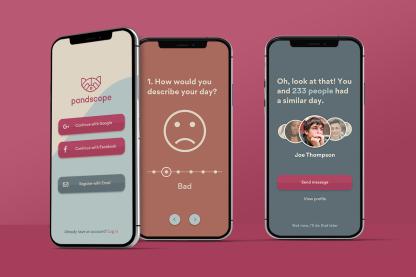
Catarina Mester - Pandscope (UI/UX Design)
Studies show that there has been an alarming rise in anxiety and isolation levels among undergraduates, much like new concerns like recession, debt and increased pressure to battle out for a finite number of graduate roles.
My idea was then to create an app where people were able to express and keep track of their emotions, seeing that they are not alone. This came after understanding that students were more comfortable talking about mental health around peers, as these are the ones who are going through similar experiences.
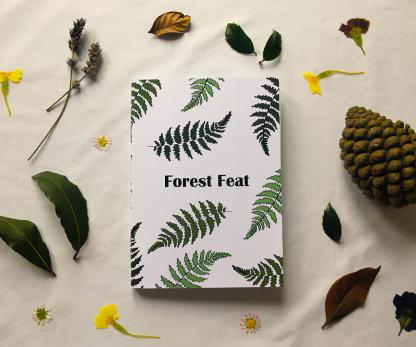
Christina Gower - Forest Feat
My name is Christina Gower and I’m graduating from the University of Portsmouth with a degree in graphic design. I am hard working, imaginative, reliable but most of all, I have a positive mindset. Also, I love a challenge and learning new skills. I work well and effectively in both a team and individual setting. Over my time at university, I completed my work during typical working hours, I have met every strict deadline as well as trained myself to de-construct briefs in order to analyse all the details. In my free time I’ll most likely be found outdoors, hiking, reading or simply enjoying my surroundings. However, if it’s a rainy day I motivate myself to learn new skills or software.
Follow Christina on Instagram
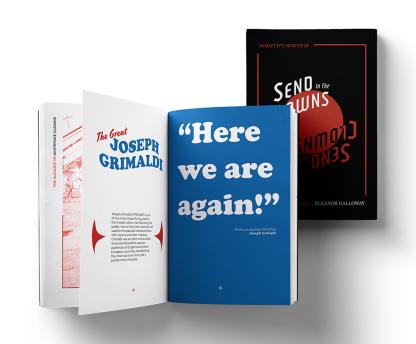
Hi, I am Eleanor Galloway an enthusiastic and creative graphic design graduate with a passion in photography and digital design. I am a hardworking individual who is able to adapt well into new situations and environments using the skills I have developed throughout university. Working within a team or collaboratively is where I work best but I am still able to take on the leadership role when necessary.
For our major projects we were given the freedom to focus on an area of our choice and design something for it. I created a book analysing and discussing the different portrayals of clowns in the media and how that has changed our perception of them. The book was aimed at adults and used a combination of materials and methods to create an interactive design that would be both fun and informative
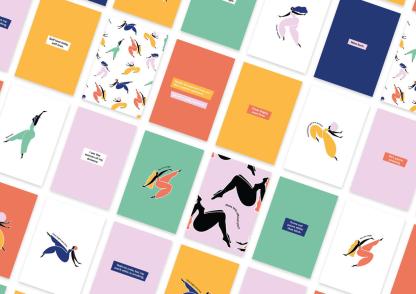
Ellis Muddle - Final Year Project
Hello, I’m Ellis, a recent Graphic Design graduate from the University of Portsmouth. I am a curious, passionate designer and like to create interactive digital experiences that challenge what we are comfortable with. My interests are in UX/UI design, editorial design, illustration and motion design.
Explore Ellis's Portfolio | ellismuddle@hotmail.com | Connect to Ellis's LinkedIn
Read less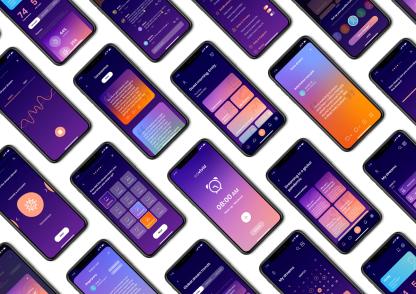
Emily Hawkins - Covivid
Hi, I’m Emily! I’m an ambitious, conscientious and enthusiastic designer with a high attention to detail. I love learning new things and enjoy challenging myself to improve my
work and achieve the best of my abilities. I particularly enjoy branding, editorial and UX/UI design and I love being playful and experimental in my design process. I have recently
been awarded as a winner in the 2021 South West Design and Digital Student Awards and have also been awarded a membership with Merit to the International Society of Typographic Design. I was also awarded a commendation in the YCN New Now Student Awards 2020.
Since March 2020, people have been dreaming more and remembering more dreams which are particularly vivid and bizarre. Covivid is an app that allows users to record, share and understand their dreams during the coronavirus pandemic. On an individual level, Covivid is a dream journalling app that can be used to digitally record and track dreams throughout the pandemic. On a larger scale, the app creates a space to explore and interact with dreams from around the world through virtual covivid dream galleries.
emily.hawkins13@gmail.com | Follow Emily on Instagram
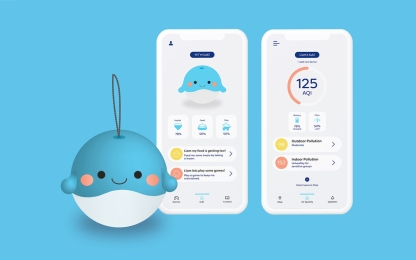
Emma Brookes - KUKI - Gallery item
Hi, I’m Emma, I am an enthusiastic designer, motivated by a desire to create innovative ideas and designs which solve real life problems and have a meaningful impact on users. My main interests are UX/UI design and branding. I have recently been awarded the Overall Creative Champion at the South West Design and Digital Student Awards and awarded a D&AD New Blood Pencil.
Kuki is an air quality pet for young children, which uses gamification techniques to inspire, engage and encourage the adoption of positive behaviours, creating responsible adults that will reduce air pollution in the future and inspire long term change. Kuki links to an app with features for both parents and kids. Within the app kids can earn points and receive rewards for their ‘pet’ kuki, encouraging positive behaviour. The health of their ‘pet’ is reflective of their own pollution exposure levels, acting as a contextual reminder. Parents can
use the app to monitor their child’s exposure, find areas of high pollution, and stay up to date on
air quality news.
emmabrookesdesign@gmail.com | Follow Emily on Instagram | Connect to Emma's LinkedIn Profile

Joao Gouveia Viveiros - final year project
I am a graphic designer and 3D artist. I enjoy uncomplicating problems and solving faults, being objective and efficient while finding innovative solutions to turn the trick and achieve the desired result. I may be ambitious but I believe in objective innovations above all.
viveiros.jpg@gmail.com
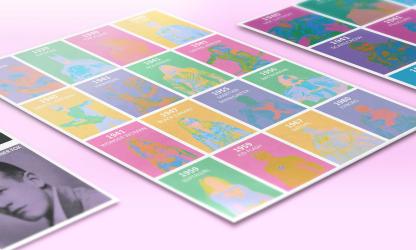
Lauren Parker - History of comic books
Hi, my name is Lauren, and I am a graduate of the University of Portsmouth studying BA (Hons) Graphic Design and hope to go on and do my masters at Loughborough in September 2021. I am organised, hardworking, and creatively driven in design and have experience in both print and digital projects. I have a love for branding, editorial and infographic design and I have strong technical skills in adobe software, including an Adobe Certified Associate in Adobe Photoshop.
parker.lauren@hotmail.co.uk | Lauren's LinkedIn profile | Follow Lauren on Instagram
Read less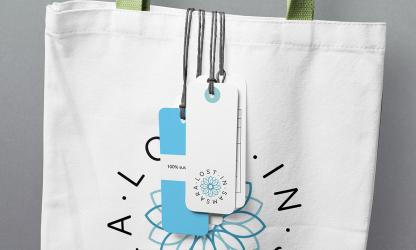
Lora Aleksieva - lost in Samasara
Hello, I’m Lora and I'm a passionate Graphic Designer originally from Bulgaria. I moved to the UK in 2018 to develop my skills and knowledge at the University of Portsmouth. I gained experience in the brand and identity industry while I worked with HMS Spirits company and Lost in Samsara. I’m also obsessed with print and typography. I love to experiment with typography, colors, high-quality paper stoke, print techniques and bookbinding. I’m an energetic, self-motivate designer looking for my next freelance projects.
Connect to Lora's LinkedIn profile | Explore Lora's Portfolio
Read less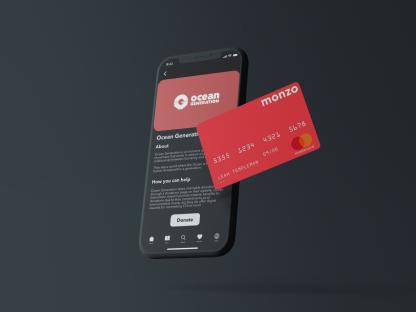
Michael Luck
I’m Michael Luck and I’m a passionate graphic designer based in Portsmouth. I’ve got a good sense of humour and enjoy working with teams and getting to know people. I’m always keen to geek out about design as well as learn and develop my abilities. I enjoy a wide range of areas within graphic design but have a particular passion for branding.
mluckdesign@gmail.com | Follow Michael on Instagram
Read less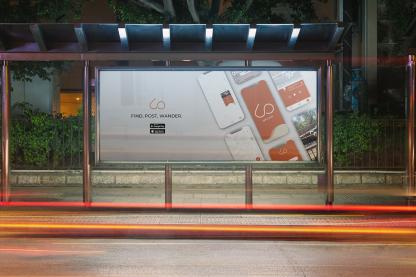
Paige Bone - Spectacle
Hi I'm Paige. I specialise in branding, user interface and editorial design. The challenge of addressing a complex problem is exciting to me, with my approach to work being heavily-research driven; an aspect of the design process I always find the most crucial. During the 4 years of my degree, I've been able to work in Germany on placement year and achieve Adobe Certification in Photoshop and InDesign. I'm currently working as a ux/ui design intern at The ENTERTAINER, Dubai.
Explore Paige's portfolio | Follow Paige on Instagram
Read less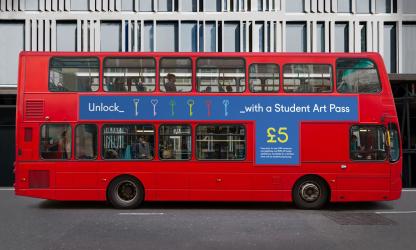
Hello! My name is Rosanna Smith, and I am an enthusiastic and hardworking Graphic Designer. I have a strong passion for digital and print design with a particular interest in branding and identity.
My course has given me a broad range of live brief experience, including working on and receiving a commendation for my submission to the YCN competition in 2019.
In my third year of university, I completed an internship at Teradata, an international database and analytics business which enabled me to work as part of a marketing team, providing design solutions for clients within the fortune 500 group.
This year, I was awarded a membership to the International Society of Typographic Designers (ISTD) for my ‘Invisible Cities’ book design submission.
This project was conducted as part of a competition unit for the You Can Now (YCN) Awards in 2019. This brief involved creating a campaign aimed at young adults aged 18-24, ‘to raise awareness” that actively choosing to visit museums or galleries more often can be a powerful antidote to the stress and anxiety of student life’. There are two messages within this campaign. The first message is that the Student Art Pass is the key to ‘unlocking’ artwork and the second, is that venues such as museums, exhibitions and galleries are spaces in which young adults can ‘unlock’ themselves.
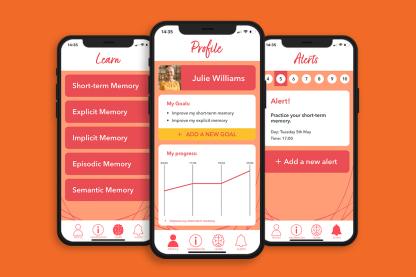
Hi, I’m Yasmin Gabellini. I’m a Graphic Designer from Southampton and I have recently graduated from the University of Portsmouth. I am particularly passionate about branding and enjoy designing original identities for new or existing companies. I have experience in designing outcomes for both print and digital purposes which I gained during my placement year.
I created this App design for my Major Project, it is an App called Memory Care which encourages 35-65 year olds to maintain and improve their memory through memory training, personal goals and alerts.
Follow Yasmin on Instagram | Explore Yasmin's portfolio
Find out Emma's achievementsI'm grateful to have had the opportunity to enter a variety of different competitions both as part of my university work as well as alongside it. ...I was awarded Overall Creative Champion at the South West Design and Digital Student Awards for my project 'Kuki', where I was also awarded Winner at the RSA Student Awards and fellowship to the RSA.
Contact information
Contact AdmissionsClearing is open
This course is available through Clearing.
Clearing 2025 is now closed
Clearing FAQs
To work out your UCAS points, use our UCAS Calculator to work out how many UCAS points you have.
The tariff calculator will allow you to see what grades you need to get into your preferred course at Portsmouth.
Even if you don't receive the grades you need, we recommend still calling us on 023 9284 8090 as we still may be able to consider you for a course
You can apply through Clearing if:
- You don't meet the conditions of your offer for your firm (first) or insurance (second) choice courses
- Your exam results are better than you expected and you want to change your course or university
- You don't hold any offers
- You've accepted an offer but changed your mind about the course you want to do
- You're applying for the first time after 30 June 2025
After we make you an offer we'll send you a confirmation email. This email will let you know what you need to do next and it will tell you what you need to provide us. In some instances we may ask you to send us copies of certificates or other information.
If you've previously applied through UCAS you'll need to use your UCAS Hub to accept our offer by adding us as your Clearing choice.
If you're having issues, please contact us on +44 (0)23 9284 8090 or admissions@port.ac.uk
Once you've accepted your Clearing course offer, we'll be in touch with details of available accommodation in the area. This will include our latest hall availability and support to find local rented accommodation via portsmouthstudentpad.co.uk
See our accommodation page for more information.
No, it's not too late and you should make your application for student finance as soon as possible. You don't have to wait for your results. You can make your application now and just amend it when you know where you're going to be.
If you've already applied for your student loan, you'll need to log into your account and update details about your new course/university. If you haven't applied for your student loan yet, don't panic. Apply today – it only takes 30 minutes.
Find out more in our Student finance for Clearing guide.
If you're an EU or international student and you need a visa to study here, you need to start the process quickly as visas can take some time to come through. Get in touch with our visa support team if you have a question or problem.
See more on visa advice.
If you would like further information or guidance, please contact our international office.
Entry requirements
Entry requirements (September 2026 start)
Typical offers for BA (Hons) Graphic Design
- A levels - BBB-BCC
- UCAS points - 104-120 points to include a minimum of 2 A levels, or equivalent (calculate your UCAS points)
- T-levels - Merit
- BTECs (Extended Diplomas) - DDM-DMM
- International Baccalaureate - 24
You may need to have studied specific subjects or GCSEs - see full entry requirements and other qualifications we accept.
Selection process
Applicants without a relevant subject will be asked to provide a portfolio to support their application.
For more information on how to put together a portfolio, read our portfolio guidance for creative undergraduate degrees
English language requirements
- English language proficiency at a minimum of IELTS band 6.0 with no component score below 5.5.
See alternative English language qualifications
We also accept other standard English tests and qualifications, as long as they meet the minimum requirements of your course.
If you don't meet the English language requirements yet, you can achieve the level you need by successfully completing a pre-sessional English programme before you start your course.
Worried about your grades?
If you're not sure you meet the entry requirements, or need some help to get uni-ready, then we offer BA (Hons) Graphic Design with a Foundation Year through our partners at ICP to bring you up to speed. When you successfully finish, you'll get a guaranteed place on BA (Hons) Graphic Design.
Find out more about our foundation years with ICP
Typical offers for BA (Hons) Graphic Design with Foundation Year
- UCAS points - 32 tariff points at A level, or equivalent (calculate your UCAS points)
You may need to have studied specific subjects – find full entry requirements and other qualifications we accept.
English language requirements
- English language proficiency at a minimum of IELTS band 5.5 with no component score below 5.5.
See alternative English language qualifications.
We also accept other standard English tests and qualifications, as long as they meet the minimum requirements of your course.
If you don't meet the English language requirements yet, you can achieve the level you need by successfully completing a pre-sessional English programme before you start your course.
Please note this foundation year with ICP isn't currently open to EU or International students.
For details on building a portfolio
See our guidance
We look at more than just your grades
While we consider your grades when making an offer, we also carefully look at your circumstances and other factors to assess your potential. These include whether you live and work in the region and your personal and family circumstances which we assess using established data.
Your facilities

Etching and Letterpress facilities
Use our traditional lino-printing, wood-cutting and monoprinting equipment for all your design and print needs.

Print workshops
Use our screen printing and screen coating rooms for your graphic materials, artwork and fabric printing – with a host of traditional and digital equipment.

Eldon Art Shop
In our non-profit art materials shop, you'll find all you need at affordable prices. Open to students, staff, alumni and University affiliates.
The course has given me all the tools I need in order to be the best designer I can be, both professionally and personally. It has taught me important values and methodologies related not only to better design practices but also for interpersonal skills.
Careers and opportunities
With the skills and knowledge you gain from this course, you can work across a variety of creative industries. In 15 months after graduating, 90% of Graphic Design graduates have already started work or are pursuing further studies (HESA Graduate Outcomes Survey 2019), so you'll be in excellent company.
Areas you could work in include magazine design publishing, branding and design, advertising, web design, and TV and film. You could also set up your own business, work as a freelancer, or go on to postgraduate study.
Graduate destinations
Companies and studios our graduates have worked at include:
- Why Not Associates
- Aardman Digital
- The Light Surgeons
- Fitch
- 4IV
- Rubrik
- FHM Magazine
Graduate startups
Some businesses our graduates have started up include:
- Territory Studio
- Bright Agency
- Debut Art
- Strong Island
- MWM Creative
- Lethal Creative Studio
- iLoveDust
Ongoing careers support
Get experience while you study, with support to find part-time jobs, volunteering opportunities, and work experience.
Towards the end of your degree and for up to five years after graduation, you’ll receive one-to-one support from our Careers and Employability Service to help you find your perfect role.
Placement year (optional)
After your second or third year, you can do an optional work placement year to get valuable longer-term work experience in many areas of graphic design. Previous students have landed roles including graphic designer and UX (user experience) designer.
Placement destinations
Previous placement students have worked at companies and organisations such as:
- Waitrose & Partners
- TopCashBack
- MMT Digital
- Waterline Media
If you fancy going independent, you can start up and run your own graphic design company for a year as an alternative to a work-based placement.
Whatever your choice, Creative Careers is here to help.
Supporting your creative career
Our dedicated Careers and Employability team have extensive recruitment experience across a multitude of areas including the creative sector.
They can provide you with supporting and advice, including:
- Searching for the ideal job through their database of vacancies
- Giving tips on how to write an interesting CV that will catch employers' attention, no matter the role
- Organising mock interviews, so you can hone your technique and familiarise yourself with the recruitment environment
- Writing your startup business proposal – if you're going down the self-employment route
- Researching placement opportunities and applying for creative opportunities
The team will continue to support you throughout your placement year and beyond, providing you with help for up to 5 years after your graduate.

Featured placement
Vanessa Maia – MMT Digital
Vanessa tells us what she's learnt during her internship as a Graphic Designer, the highlights she's encountered, and the challenges she's surmounted along the way.
Modules
Each module on this course is worth a certain number of credits.
In each year, you need to study modules worth a total of 120 credits. For example, four modules worth 30 credits each or two modules worth 45 credits each and one module worth 30 credits.
What you’ll study
Foundation year
If you're not sure you meet the entry requirements, or need some help to get uni-ready, then we offer this course with a foundation year to bring you up speed.
-
You'll study with our partners ICP on the University of Portsmouth campus with access to all facilities, support and societies
-
When you finish your foundation year successfully, you get a guaranteed place on BA (Hons) Graphic Design
-
Get used to how lectures, seminars and tutorials work, so you can move onto your degree ready for success
-
Learn how to meet the demands of taking on a bachelor's degree at university
Find out more about our foundation years with ICP
Core modules
You'll get the foundational knowledge and skills to get your ready to advance onto the first year of a degree at the University of Portsmouth. You'll gain an appreciation for the knowledge and skills required to effectively manage and operate a business.
You'll focused on developing student ability to translate ideas to hand drawings and sketches as an important part of the design process. Successful completion of this module indicates that you will have obtained a good understanding of and ability to apply the requisite basic Design Concepts knowledge and skills.
Collect, assess and evaluate a variety of data required to undertake a design project.
Understand the structure of the design through transformation and convergent stages. The principal phases from consideration of market need through specification, conceptual designs, feasibility, detail design to manufacture, modification, development, use and retirement.
The module introduces candidates to the interesting challenges that ICT presents today and covers many anchor points that may serve as a bridge to their interests and lifestyles.
It also means you understand the value of scholarships, allowing you to move on to postgraduate programs at the University of Portsmouth.
Successful completion of this module indicates that students have obtained a good understanding of and ability to understand and rationalise aspects of emerging New Media; and indicates that students have obtained a good understanding of and ability to apply the requisite basic understanding and critical thinking skills to enable them to proceed to a range of programmes at the University.
You will be able to develop an initial focus on their chosen subject specialism via project outcomes and present their work in the form of a digital or on-line portfolio.
Successful completion of this module indicates that students have obtained improved skills of observation, research and analysis for project development, a good understanding of 'the creative journey' as equal to the importance of the 'final creative piece' and the ability to work to a project brief and indicates that students have obtained a good understanding of and ability to apply the requisite basic understanding and critical thinking skills to enable them to proceed to a range of programmes at the University. Provide some exposure to live project opportunities in the local environment.
Students will be able to develop an initial focus on their chosen subject specialism via project outcomes and present their work in the form of a digital or on-line portfolio.
Successful completion of this module indicates that students have obtained improved skills of observation, research and analysis for project development, a good understanding of 'the creative journey' as equal to the importance of the 'final creative piece' and the ability to work to a project brief and indicates that students have obtained a good understanding of and ability to apply the requisite basic understanding and critical thinking skills to enable them to proceed to a range of programmes at the University. Provide some exposure to live project opportunities in the local environment.
The module will give students the basic tools to conduct research using either qualitative or quantitative methodologies.
It will also enhance comprehension and interpretation of the mechanics of argumentation; the ability to effectively evaluate the rationale of argument and evidence to support claims; assess the credibility of sources made in claims; and formulate and deliver both verbally and in writing well-structured and critically reasoned arguments and opinions.
On this module you'll explore the core building blocks of graphic design by working with paper, colour, image, type and layout. handson studio practice is combined with digital software sessions and workshops in areas such as screen printing, letterpress, 3d printing and laser cutting, giving you the freedom to experiment and build confidence with essential tools and techniques.
Research, ideatesting and design theory become part of your creative process, helping you produce work that is both informed and impactful. as you explore the history of graphic design, you'll see how it shapes visual culture and influences how visual messages are interpreted.
You'll develop your skills in creating, refining and promoting your work, learning how to share ideas across print and social media. by bringing together everything developed throughout the first year, you'll being to shape a professional presence that reflects your growing creative identity.
Core modules
You'll test different strategies and how they resonate with target demographics. You'll combine analysis with software mastery, working to commercial deadlines, and demonstrating professional skills.
With core abilities reinforced through lived experience, this module provides invaluable experience of real workplace demands.
You’ll adopt research methodologies to gain insights into user needs and inform design decisions.
You’ll conceptualise solutions that are focused on the human experience and apply UX principles through an industry project. Using technical skills in UX software, such as Figma and Sketch, you’ll craft interfaces that feel intuitive.
This module will enable you to bridge gaps between products and people through user-centric design.
You’ll enhance your skills in typography, layout, and production. Your focus will be on materials for in-depth reading, like books and journals.
Study examples and learn how to bind books, then get to design and produce your own printed book. You’ll pick out paper, use both digital and screen printing methods, and work with print settings in InDesign software.
Our workshops, tutorials, and feedback sessions will guide you from idea to publication.
This module equips you with essential practical skills for success in typography and editorial design jobs in graphic design.
You’ll look into important topics like sustainability and representation. Learn about the important role you have in society as a graphic designer. We’ll help you think deeply about an issue you care about and then make something that shows your understanding of that issue. You’ll get to talk about challenging ideas in workshops and learn how to look at research without bias.
When you finish, you’ll be ready to tackle tricky questions and use your design skills to make a difference. This module will help you figure out what you stand for, find your unique style, and make thinking about right and wrong a key part of how you create.
Optional modules
Through a study exchange overseas, you'll manage tasks and projects relevant to your course, working independently or collaboratively as part of a team.
The experience enables you to showcase your talents on a global stage while reflecting on your personal growth. With enhanced employability prospects, you return home with a new perspective to inform your practice.
You will research historical and theoretical frameworks, outlining a critical stance on addressing body and space holistically. Communicating analytical findings in written assessments, you will show engagement with the research process. The module enables appreciation of interiority as an evolving assemblage of human and non-human dynamics.
You'll explore early modern Europe's complex world through everyday objects, analysing diverse artefacts - shoes, monuments, religious objects, food - and how they offer new perspectives for our understanding of the past and the present.
You'll consider how the study of objects can lead to new interpretations of historical narratives such as 'the consumer revolution', the development of a global economy, the emergence of new forms of inequality, and changing understandings of public and private.
You'll unearth the multiple lives and 'afterlives' of objects, engaging with debates about their significance and importance in heritage contexts in the 21st century, with access to some of the rich material culture available within the city, including the Mary Rose Museum.
Examine historical representation across disciplines to see how images offer bold perspectives throughout history, as you sharpen your analytical skills by comparing different visual histories and academic arguments.
You'll discuss critical issues in using visual culture as a form of historical storytelling. When you finish this module you'll be ready to choose a topic for your final year project.
You'll explore design, fashion, illustration, photography, film, television and online materials associated with feminist art canons, representation of disability and the treatment of victims of true crime on screen. You'll also consider research methods and to prepare for your final year project.
Join a team of creative students and do a project together. Try new things and see how they can help you.
You’ll also grasp how to use your skills with others. Sometimes you’ll be a leader, sometimes a helper. Talk about your ideas and learn from them. You’ll make something to show what you learned and share it with others.
This module helps you gain new skills and understand other fields. You’ll be a smart and creative person, ready to solve real-world problems.
Building upon your foundational experiences from your first year, this module delves into the realm of large-scale graphic design through a blend of cutting-edge analogue and digital techniques.
In this module, you'll immerse yourself in a world where traditional boundaries of graphic design are redefined. You'll engage with a variety of tools and environments, such as the CCIXR, motion and 3D technologies, projection methods, and the Eldon 3D studios The use of CNC, CAD fabrication tools, and woodworking will not just be an exercise but a journey into creating immersive environments where design is not just seen but experienced.
You’ll choose learning tasks that add up to 60 hours, like internships, volunteering, research, or remote study that match your career plans. Workshops will help you make meaningful goals and think about what you’ve accomplished. Through this, you’ll grow the knowledge, skills, and qualities you need to thrive in the workplace.
By looking at your growth through active participation and reading, you’ll become a perceptive, eager job-seeker who stands out.
As a team, you will embark on a journey of entrepreneurship, starting with ideation and ending with the launch of your product or service. You will analyse complex factors influencing a successful launch, conduct thorough research to assess feasibility and gain valuable insights into marketing, manufacturing, and sales strategies.
Working together on pitch presentations, you will discover your strengths as an entrepreneur or team member. This module provides transferable skills essential to thrive in creative industries, whether you plan to launch your own company or seek employment with top organisations. You will develop the mindset and abilities to spot opportunities and act on them, which will benefit your career.
Core modules
You get to choose what you want to study deeply. You’ll examine different sources, collect information, and understand the bigger picture. We’ll be there to help you get better at making designs based on your research, picking the best ways to explore your ideas, and explaining why they work. Learn to use different methods—from surveys to prototyping—to effectively share your ideas. You’ll also perfect your abilities in presenting your work and thinking about what makes you unique and skilled.
Gain the confidence and sharp thinking you need as a designer to take on tough projects and come up with exciting new solutions.
You'll apply your previous knowledge to research and execute a significant project on a topic of your choice. The project will involve a lot of visual and written exploration, where you'll experiment with various techniques, methods, and materials.
While working on your project, consider the message it conveys, the setting it will be presented in, and the intended audience. You should also think about how it could be used professionally.
The module will culminate with you presenting your ambitious idea in a professional manner, such as an exhibition, a portfolio, or another suitable platform.
Throughout this module, you'll have the opportunity to refine your graphic design skills, including the ability to receive feedback and make modifications. This experience will prepare you to pursue creative careers or further studies after graduation.
You'll take part in contests by leading design institutions, honing your problem-solving and innovative mindset. We’ll help you refine and show a wide range of technical abilities—from traditional letterpress to modern book cover design—all with professional guidance. Learn to critically evaluate your distinctive style by looking at current design practices. Through expert advice on project handling, you’ll handle pressing deadlines, preparing you to excel in a real-world setting.
When you finish, you’ll have a portfolio that stands out and industry contacts that could help fast-track your professional goals.
You'll build strong organisational and time management abilities like those you'll use in the design industry. Through research, development and practice, you'll work within specific design rules and deadlines.
When you complete this module, you'll have the skills to communicate effectively with clients and demonstrate skills in using design software.
Through lectures and workshops, you'll examine historical and theoretical approaches to practice-based research. Working with lecturers, you'll develop a portfolio of exploratory work and written content to inform your final project.
You’ll learn to craft a personal brand and create a striking portfolio that showcases your abilities. We’ll guide you in everything, from writing a standout CV to mastering job interviews, equipping you with the know-how to present your unique brand. Working in a team for our annual showcase will improve your problem-solving creativity and project management skills.
We’ll also assist you in enhancing your online profile, ensuring you leave the course ready to impress potential employers.
Realise your full potential and smoothly make the move from student life to a thriving career in the creative industries.
You’ll spend 24–48 weeks at a chosen company, learning from professionals and helping out with actual projects. Gain confidence, knowledge, and skills by taking on more responsibility with gradually less help. As you progress, you’ll make professional connections and think about how you’re doing. Take in what you learn about how industries and businesses work.
This placement is an ideal chance to grow in your career. By using what you’ve learnt in a workplace, you’ll understand more about your own strengths, what you need to work on, and your plans after you graduate.
After this placement and the related assessments, you’ll get extra credits for your sandwich degree. This practical experience is a valuable part of your education.
This experience lets you learn firsthand how to set up and run a small business. You’ll absorb professional practices and business situations that matter to your entrepreneurial goals. Make important connections while working independently within set rules. Think deeply about your strengths, weaknesses, criteria for success, and future plans.
This opportunity is useful for your career. It lets you use what you’ve learnt in your degree in the real world and helps you understand your capabilities.
After finishing this placement and the related assessments, you’ll get more credits for your sandwich degree. This practical experience is a valuable step in developing an entrepreneurial way of thinking.
During this module, you'll spend 6 months working on your own business venture, then 3 months gaining industry experience. This opportunity allows you to apply what you've learned in a practical setting while exploring different career options. You'll also have the chance to develop professional relationships and expand your network.
Assess your personal strengths and weaknesses to set goals for the future. Throughout the module, you'll demonstrate increasing independence while still valuing the support of others. Gain a broader understanding of the world through real-world experiences and insights. Additionally, you'll earn valuable credits for your CV and enhance your skill set.
By the end of this module, you'll graduate with the practical experience that employers are seeking.
Complete relevant tasks demonstrating your specialised skills and independence.
Gain global perspective, reflect deeply on personal growth, and build valued transferable abilities for professional life after university. Return home with experiences that inspire your practice and understanding of art’s global connectivity.
Evaluating international contexts, you'll critically relate on-site activities to your disciplinary knowledge, gaining global insights. Working independently overseas, you'll complete relevant assignments, refining skills transferable to future creative studies and practice.
Upon returning, thoughtful reflection will reveal your personal growth as you process new worldviews and cross-cultural competencies. This invaluable opportunity provides a chance to broaden your creative knowledge while developing adaptability as a global citizen.
Changes to course content
We use the best and most current research and professional practice alongside feedback from our students to make sure course content is relevant to your future career or further studies.
Therefore, some course content may change over time to reflect changes in the discipline or industry. If a module doesn't run, we'll let you know as soon as possible and help you choose an alternative module.
Teaching
Teaching methods on this course include:
- lectures
- group critique
- seminars
- individual tutorials
There’s an emphasis on practical sessions, a strong studio culture and developing a creative atmosphere that will inspire you.
You can access all teaching resources on Moodle, our virtual learning environment, from anywhere with a Web connection.
For more about the teaching activities for specific modules, see the module list above.
How you're assessed
Not a fan of exams? Don't worry – there aren't any on this course. Instead, you can let your designs do the talking.
You’ll be assessed through:
- project presentations
- research and developmental work
- design portfolios
- written essays or reports
You’ll be able to test your skills and knowledge informally before you do assessments that count towards your final mark.
You can get feedback on all practice and formal assessments so you can improve in the future.
How you'll spend your time
One of the main differences between school or college and university is how much control you have over your learning.
We use a blended learning approach to teaching, which means you’ll take part in both face-to-face and online activities during your studies. As well as attending your timetabled classes you'll study independently in your free time, supported by staff and our virtual learning environment, Moodle.
A typical week
We recommend you spend at least 35 hours a week studying for your degree.
In your first year, you’ll be in timetabled teaching activities such as lectures, tutorials, seminars, practical classes, workshops and supervised studio sessions for about 11 hours a week. The rest of the time you’ll do independent study such as research, reading, coursework and project work, alone or in a group with others from your course.
You'll probably do more independent study and have less scheduled teaching in years 2 and 3, but this depends on which modules you choose.
Most timetabled teaching takes place during the day, Monday to Friday. You may occasionally need to go to University and course events in the evenings and at weekends. There’s usually no teaching on Wednesday afternoons.
Your workload
The time you spend in teaching activities such as lectures and seminars varies year on year and will depend on which optional modules you select. As a guide, students on this course last year typically spent their time as follows:
- Year 1 students: 23% in lectures, seminars and similar learning activities, and 77% studying independently
- Year 2 students: 23% in lectures, seminars and similar learning activities, and 77% studying independently
- Year 3 students: 12% in lectures, seminars and similar learning activities, and 88% studying independently
Term dates
The academic year runs from September to June. There are breaks at Christmas and Easter.
Supporting you
The amount of timetabled teaching you'll get on your degree might be less than what you're used to at school or college, but you'll also get support via video, phone and face-to-face from teaching and support staff to enhance your learning experience and help you succeed. You can build your personalised network of support from the following people and services:
Types of support
Your personal tutor helps you make the transition to independent study and gives you academic and personal support throughout your time at university.
You'll have regular contact with your personal tutor in learning activities or scheduled meetings. You can also make an appointment with them if you need extra support.
You'll have help from a team of faculty academic skills tutors. They can help you improve and develop your academic skills and support you in any area of your study.
They can help with:
- improving your academic writing (for example, essays, reports, dissertations)
- delivering presentations (including observing and filming presentations)
- understanding and using assignment feedback
- managing your time and workload
- revision and exam techniques
During term time, Faculty Academic Skills Tutors (AST) are available for bookable 1-to-1 sessions, small group sessions and online sessions. These sessions are tailored to your needs.
Support is available for skills including:
- University study
- Getting into the right study mindset
- Note-taking and note-making skills
- Referencing
- Presentation skills
- Time management, planning, and goal setting
- Critical thinking
- Avoiding plagiarism
If you have a disability or need extra support, our Disability Advice team will give you help, support and advice.
You can get personal, emotional and mental health support from Student Wellbeing, in person and online. This includes 1–2–1 support as well as courses and workshops that help you better manage stress, anxiety or depression.
If you require extra support because of a disability or additional learning need our specialist team can help you.
They'll help you to
- discuss and agree on reasonable adjustments
- liaise with other University services and facilities, such as the library
- access specialist study skills and strategies tutors, and assistive technology tutors, on a 1-to-1 basis or in groups
- liaise with external services
Library staff are available in person or by email, phone, or online chat to help you make the most of the University’s library resources. You can also request one-to-one appointments and get support from a librarian who specialises in your subject area.
The library is open 24 hours a day, every day, in term time.
If English isn't your first language, you can do one of our English language courses to improve your written and spoken English language skills before starting your degree. Once you're here, you can take part in our free In-Sessional English (ISE) programme to improve your English further.
Course costs and funding
Tuition fees (September 2026 start)
BA (Hons)
- UK/Channel Islands and Isle of Man students – £9,790 a year (may be subject to annual increase)
- EU students – £10,300 a year (including EU Scholarship - may be subject to annual increase)
- International students – £17,900 a year (subject to annual increase)
You won't pay any extra tuition fees to another university for taking part in a study/work abroad activity if you choose to do it for the whole academic year. During a year abroad you'll only have to pay a reduced fee to the University of Portsmouth.
Foundation Year
- UK/Channel Islands and Isle of Man students – £9,535 per year (may be subject to annual increase)
Please note this foundation year with ICP isn't currently open to EU or International students.
Funding your studies
Find out how to fund your studies, including the scholarships and bursaries you could get. You can also find more about tuition fees and living costs, including what your tuition fees cover.
Applying from outside the UK? Find out about funding options for international students.
Additional course costs
These course-related costs aren’t included in the tuition fees. So you’ll need to budget for them when you plan your spending.
Costs breakdown
Our accommodation section shows your accommodation options and highlights how much it costs to live in Portsmouth.
You’ll study up to 6 modules a year. You may have to read several recommended books or textbooks for each module.
You can borrow most of these from the Library. If you buy these, they may cost up to £60 each.
We recommend that you budget £75 a year for photocopying, memory sticks, DVDs and CDs, printing charges, binding and specialist printing.
If your final year includes a major project, there could be cost for transport or accommodation related to your research activities. The amount will depend on the project you choose.
You'll need to pay extra printing costs of around £100–£600 on portfolio work.
Material and production costs are around £100–£500 a year.
Any study trips are optional and you will be expected to pay full cost. Optional study trips abroad will cost in the region of £200–£800. UK trips, where offered, will be £50–£150.
If you take a placement year or study abroad year, tuition fees for that year are as follows:
- UK/Channel Islands and Isle of Man students – £1,430 a year (may be subject to annual increase)
- EU students – £1,430 a year (including EU Scholarship - may be subject to annual increase)
- International students – £2,875 a year (subject to annual increase)
Apply
September 2026 start
To start BA (Hons) Graphic Design in 2026, apply through UCAS. You'll need:
- the UCAS course code – W210
- our institution code – P80
If you'd prefer to apply directly, use our online application form.
You can also sign up to an Open Day to:
- Tour our campus, facilities and halls of residence
- Speak with lecturers and chat with our students
- Get information about where to live, how to fund your studies and which clubs and societies to join
If you're new to the application process, read our guide on applying for an undergraduate course.
To start BA (Hons) Graphic Design with a Foundation Year in 2026, apply through UCAS. You'll need:
-
the UCAS course code – W211
-
our institution code – P80
If you'd prefer to apply directly, use our online application form:
Please note this foundation year with ICP isn't currently open to EU or International students.
You can also sign up to an Open Day to:
-
Tour our campus, facilities and halls of residence
-
Speak with lecturers and chat with our students
-
Get information about where to live, how to fund your studies and which clubs and societies to join
If you're new to the application process, read our guide on applying for an undergraduate course.
Applying from outside the UK
As an international student you'll apply using the same process as UK students, but you’ll need to consider a few extra things.
You can get an agent to help with your application. Check your country page for details of agents in your region.
Find out what additional information you need in our international students section.
If you don't meet the English language requirements for this course yet, you can achieve the level you need by successfully completing a pre-sessional English programme before you start your course.
Admissions terms and conditions
When you accept an offer to study at the University of Portsmouth, you also agree to abide by our Student Contract (which includes the University's relevant policies, rules and regulations). You should read and consider these before you apply.


